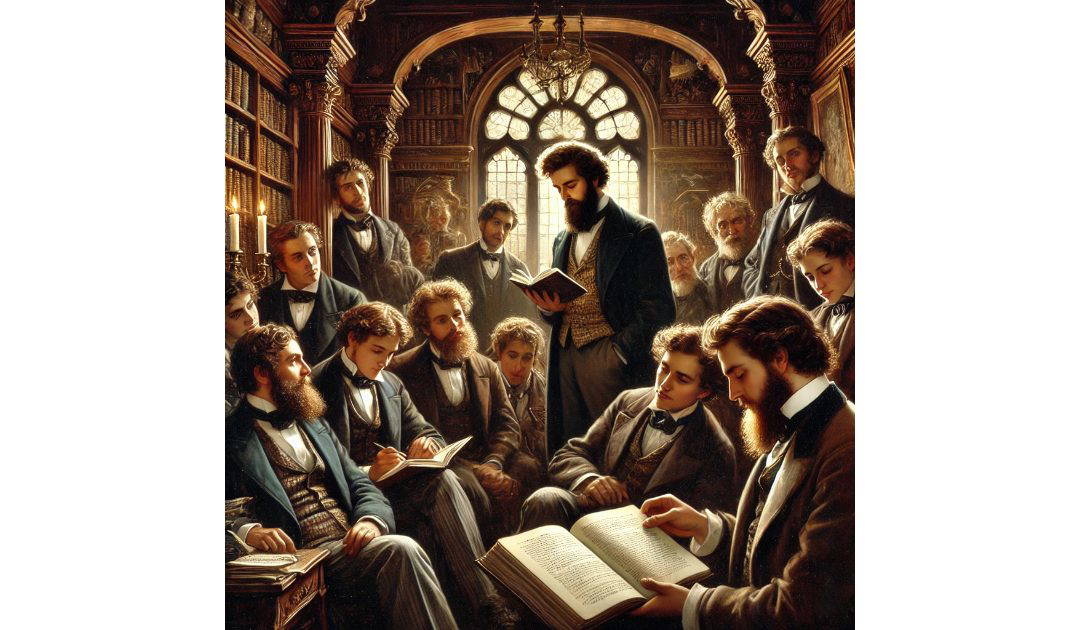On the 19th November 1850 Tennyson became Poet Laureate. I’ve posted about Gutenberg and his printing press, and also William Caxton, but presses need writers as much as writers need presses. One of my favourite poets is Tennyson.
Alfred, Lord Tennyson (1809–1892) was a renowned English poet whose work deeply influenced the Victorian literary landscape. Born in Somersby, Lincolnshire, he displayed a talent for poetry from an early age, writing his first pieces as a teenager. Tennyson attended Trinity College, Cambridge, where he became part of a literary group known as the “Apostles,” and forged a close friendship with Arthur Hallam, a profound influence on his life and work. I thought I recognised the Cambridge Apostles, they feature in my post on the Cambridge Spies.
Tennyson’s poetry quickly gained attention for its lyrical quality, psychological insight, and exploration of themes like nature, love, mortality, and human struggle. His early works, such as Poems, Chiefly Lyrical (1830), were well-received, though he experienced personal and professional setbacks, including the sudden death of Hallam in 1833. This loss deeply affected Tennyson, inspiring his famed work In Memoriam A.H.H. (1850), a long elegy exploring grief, faith, and the afterlife. This poem struck a chord with Victorian readers, earning Tennyson both fame and respect. That same year, he was appointed Poet Laureate, a position he held for over four decades.
As Poet Laureate, Tennyson crafted poetry that resonated with the spirit of the age. Works like “The Charge of the Light Brigade” (1854), written in response to a tragic military event during the Crimean War, exemplified his role as a national voice, using poetry to honor heroism and critique the cost of war. His enduringly popular collection, Idylls of the King (1859), a retelling of the Arthurian legends, further solidified his reputation, blending myth with themes relevant to Victorian society, such as honor, duty, and morality.
Tennyson’s poetic style was marked by a masterful use of rhythm, rich imagery, and a keen understanding of human emotion, qualities that made his work accessible to both the Victorian elite and general public. His language often conveyed a sense of melancholy, reflecting his lifelong struggle with depression and existential questioning. Yet his poetry also affirmed the power of beauty, love, and resilience.
Tennyson’s influence on English literature has been profound, as his work not only captured the Victorian ethos but also delved into universal human themes that continue to resonate. After his death in 1892, Tennyson was buried in Westminster Abbey’s Poets’ Corner, cementing his legacy as one of England’s greatest poets. His ability to combine personal emotion with national identity has kept his work relevant and admired across generations.

